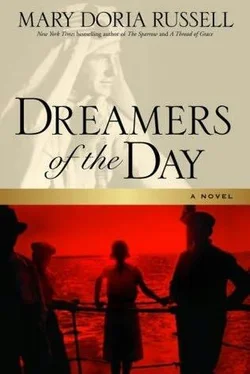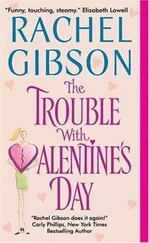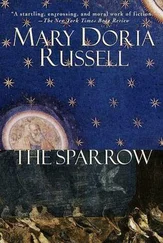Near the end of the Great War, just before he was killed, the poet Wilfred Owen provided us with a simple searing description of the damage war had done to his spirit while his men were destroyed in wholesale lots: “My senses are charred. I don’t take the cigarette out of my mouth when I write ‘Deceased’ over their letters.” Later, when the fighting ended, Mr. Aldington and Mr. Graves described trench warfare with such bitter exactitude, it seemed to me a mercy that Ernest had died before he reached France, if die he must. Like the doomed Persians of Aeschylus, “he was happiest who soonest gasped away the breath of life.”
The pointless savagery of the Great War forged a generation of writers, so I’ve always found it strange that no one here at home chronicled the Great Influenza or its effects on us, although Miss Katherine Porter did write the brief and touching story of her soldier-love, who died of the influenza that he caught while nursing her. Without literature as a guide, I expect you think of the flu as a homey, familiar kind of illness, not a horrifying scourge like the black plague or smallpox. You may believe you know what the flu epidemic was like for us.
Pray, now, that you never learn how wrong you are.
The onset of the disease was abrupt, very much like that of meningitis, which is what the doctors thought it was, in the beginning. The initial symptoms were a severe headache and a high fever, followed by those of an awful cold: a terrible sore throat, an endlessly dripping nose, violent coughing. And then—
Well, I cannot make poetry of our great trial, as Mr. Owen did of combat, but permit me to act the schoolteacher and explain to you the workings of the lungs. In health, they are the lightest of all our organs. Their surfaces are a lacy gauze of fine blood vessels. Across this diaphanous borderland between the body and the world, the scientists tell us, life must be renewed each moment of the day and night by the exchange of gaseous waste for fresh, clean oxygen.
Early in the epidemic, frantic to find the cause of this vicious illness, pathologists cut open chests and discovered that those delicate soap-bubble lungs were as heavy and solid as a liver—saturated with bloody fluid, the air passages leading to the throat completely blocked. Those who died turned blue-black for want of air. In the morgues, bodies the color of slate were said to be stacked in piles “like cordwood.” In a single year, fifty million people died that way—millions more than died in combat on all sides, on all fronts, in four and a half years of the Great War, itself an orgy of killing.
My own experience was one of delirium and long nightmares of drowning. Over and over, I would slide down a thick hemp rope toward water. Hour after hour, I tried to climb that rope, desperate to keep my head above the surface. My leaden arms would fail me. I’d slip beneath the water, and then I’d awaken myself: coughing, coughing, coughing.
I, who never wished to be a bother to Mumma, called and called to her in my dreams, but she never came. Around me, fellow sufferers groaned and wept. I heard muffled voices—masked doctors, nurses, hospital attendants, I realized later. Those poor heroes and heroines must have been overwhelmed and exhausted, trying to care for hundreds of patients who were hemorrhaging from the nose and throat. It was an inferno worthy of Dante, for them, and for us.
Whenever it became clear that patients might survive, they were removed from the hospital to make way for others. “Poveretta,” Mrs. Motta cried as I was carried up to my room in her boardinghouse. “Poor little t’ing! I make a bath. You want I wash your hair?”
It was such a comfort, feeling her soapy hands gently rinse away the waxy sweat and stink of illness. That good woman nursed me with motherly tenderness, as though I were her own, but when I asked why my own mother did not come, or why I had not been taken home to Cedar Glen, Mrs. Motta never answered my questions. “You rest now,” she’d say firmly, and then she’d leave me alone to sleep.
Only when my recovery seemed assured did she hand me the stack of telegrams that had been delivered while I lay ill. Douglas. Lillie. Their boys. Uncle John. Mumma. All of them were gone.
“I’m sorry, signorina,” Mrs. Motta said, wringing her hands as I read the messages, one after the other. “I’m real sorry.”
When I laid the flimsy yellow sheets aside, Mrs. Motta handed me a business card. I recognized the name. Mr. James Reichardt was a junior partner in Uncle John’s law firm.
“He come round here twice, for to see you,” Mrs. Motta told me. “He say dere’s a ’heritance, signorina. And he wanna know, what you wan’ him-a do wit’ dat dog?”
Over the years, Mumma had raised and sold generations of puppies: first collies, then cocker spaniels, and finally dachshunds—all long, benchlike dogs, decreasing in size as her stamina declined.
“The dachshund is a perfectly engineered dog,” Ernest once observed. “It is precisely long enough for a single standard stroke of the back, but you aren’t paying for any superfluous leg.”
Perhaps it was the dachshund’s economy of material that appealed to Mumma, but her timing with the breed was unfortunate. She had tried to popularize the long-haired variety, believing its temperament was better, but people preferred the familiar short-haired red. Later, when the war started, no one would buy anything remotely German. By 1918, Mumma was practically giving the pups away. She decided to sell the breeding stock and get out of the business entirely.
As luck would have it, I was present for the final whelping. The last to emerge was a black-and-tan female with a badly kinked tail and an unattractive blue dapple splattered across her back and face. These were defects that doomed a puppy to a quick end. Mumma kept a bucket of water in the kennel for just that purpose. You may think her harsh, but it is a conscientious breeder’s duty to be critical. Mumma had tried crossing dapples in the past, and the results had sometimes been disastrous. This little female might be healthy enough, but her own offspring could be born eyeless, or earless, or brainless. Mumma had never worked out a way to predict when or why that would happen.
“No sense exhausting the bitch’s resources on a pup that shouldn’t be bred,” she said briskly.
“Wait!” I said, and stayed my mother’s hand when she reached for the dapple. “I’ll take her.”
Mumma stared.
I dropped my gaze, ashamed of my wayward eye, but I couldn’t stop myself from arguing. “You always say I don’t get enough exercise. Walking a dog will be good for me.”
Mumma couldn’t dispute the principle, but picked up the puppy anyway. “Well, you don’t want this one. You want the sable.”
All my life, Mumma had told me what I didn’t want. “Oh, you don’t want those earrings,” she’d say. “They’ll draw attention to your eyes.” Oh, you don’t want that dress. It will make you look like a stick. Oh, you don’t want eggs for breakfast. You want oatmeal. It’s better for you in cold weather. Well, I didn’t want oatmeal. I never wanted oatmeal. I hated the stuff, but I choked it down, all winter long, because Mumma put it in front of me and told me that was what I wanted.
Suddenly, and I cannot tell you why, a determination came over me like I don’t know what! I did not want that puppy’s perfectly lovely red sister or her handsome sable brother. No, I wanted the defective little black-and-tan. I wanted her ferociously, indignantly, unbendingly—blue dapple, kinked tail, and all.
Mumma was just as determined to save me from my own bad judgment. “Agnes, you’re not making any sense” became “This is a mistake. That pup is inferior” and finally a tearful “I am only trying to guide you, Agnes. There’s no reason for you to speak to me in that tone.”
Читать дальше












